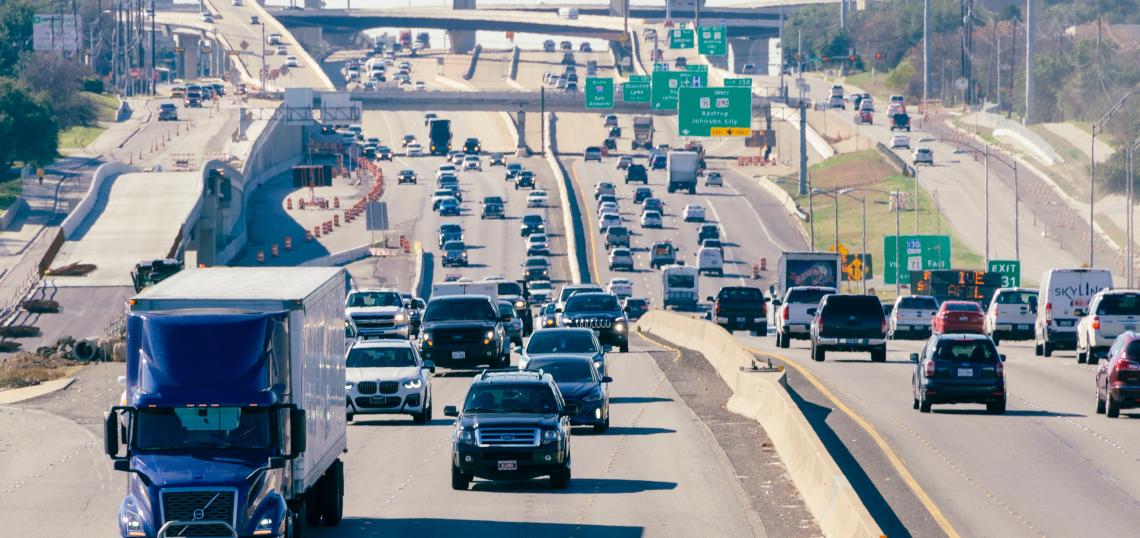A coalition of Austin-area transportation organizations is on the receiving end of a $47.9 Environmental Protection Agency grant, meant to alleviate some of expected traffic congestion from the more than $20 billion in mobility infrastructure investments planned for Central Texas' in the next decade.
The Climate Pollution Reduction Grant is intended to help commuters in the region adjust to upcoming major construction projects that will disrupt travel in the Austin area, according to a Monday city press release.
As the begins its I-35 Capital Express Central project and Austin implements Project Connect (light rail and other connectivity improvements), construction will cause major traffic impacts over the next decade and risks increasing vehicle miles traveled and air pollution by single-occupant vehicles.
TxDOT, Central Texas Regional Mobility Authority, Travis County, the city, and CapMetro are all involved in implementing of the massive highway and mobility infrastructure plans.
The grant is awarded to the city of Austin, which will lead implementation of the projects it will fund. Partners in this grant-funded effort to help manage how the community navigates the disruption include TxDOT, Capital Area Council of Governments, CapMetro, Capital Area Rural Transportation Service, and Movability.
In an effort to reduce risks associated with the construction, the groups will use the federal funds in three ways, according to the release:
- Improving regional transit service: CARTS will be expanded, offering more frequent service on its interurban coach and additional vanpool services to suburban communities such as San Marcos, Bastrop and Taylor; CapMetro will increase frequency in north/south routes adjacent to construction; and small-scale shuttles/circulators will operate in construction areas.
- Investing in mobility infrastructure: New or improved "mobility hubs" will be created at key regional and local mobility transition points, making carpooling, biking, transit and other non-SOV transportation choices more viable. The stations will include expanded access to CapMetro Bikeshare and other micromobility options, large scale secure bicycle storage, parking availability information, bike and pedestrian counters and air quality monitors for data collection.
- Inspiring behavior change: The grant will allow a large-scale program of incentives and engagement to encourage people to stop driving alone. In addition, the program can provide financial incentives aiding low-income transit users and limited payments encouraging new users; grassroots, community-based programming to develop personalized travel planning for hard-to-reach communities; implementation of a coordinated regional mobility website, including live customer service and text/chat support; and regional, multilingual marketing and communications outreach.






